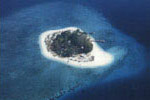
|
|

|
|
|
The South Sulawesi region adopted Islam as the official religion in the early 17th century. Four centuries later, in 2000, the statistics revealed that majority of the people were Islamic adherents. In the political realm, however, Islamic-based political parties (IBPPs) do not always have steady supporters. In the 1955 election, for instance, the IBPPs were the majority players in the region winning 70 per cent of the total votes. From the New Order's five consecutive elections (1971-1997) to the recent election of 1999, IBPPs could only claim average of five to twelve per cent of the total votes. They had lost their votes to the state-sponsored and secular party, Golkar. This study seeks to elaborate the factors that influence the IBPPs in the regional politics of South Sulawesi. In particularly, it will investigate factors that have caused the rise and fall of the IBPPs. The study raises the following question: "What variables that have influenced the presence of Islamic-base political parties (IBPPs) in this region?" To answer this question, the study formulates the subsequent hypothesis: "External and internal causal variables directly affect the rise and fall of the Islamic-based political parties in the regional politics?" The study considers the existing government policies on political parties and elections as the external variable and treats regional culture as the internal variable. The study use the consecutive results of elections from 1955 to 1999 as the prime sources to observe the involvement of the IBPPs in regional politics. Then, the study utilizes the comparative approach to analyze the supports earned by the IBPPs in every election. It will compare the results of each election in order to measure the level of support for the IBPPs. It investigates how the external and internal variables have played roles in the rise and fall of the IBPPs. Then it will compare the degree of the rise and the fall of the IBPPs qualitatively in the regional politics.
The study expects to find the dominant variables that affect the position of the IBPPs in the regional politics. It will propose recommendation on how the IBPPs should respond toward the causal variables in order for them to maintain supports in the regional politics of South Sulawesi.
|
Jointly organized by IIAS the Netherlands and The State Institute of Islamic Studies, Makassar